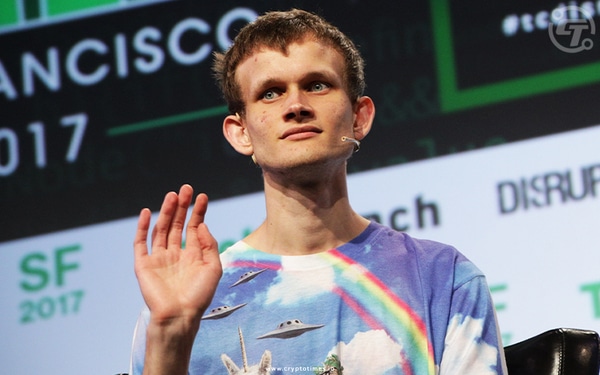The Ethereum co-founder, Vitalik Buterin has published a post on his official blog, citing his views on biometric proof of personhood and the application of Worldcoin.
The blog-post comes forward from Vitalik amid the surging popularity in Worldcoin and its market. Vitalik claims that, “Worldcoin is unique in that it relies on highly sophisticated biometrics, scanning each user’s iris using a piece of specialized hardware called the Orb.”
Worldcoin is the first major innovation that is based on the concept of decentralized identity verification. It has also caught attention from the community as its founder Sam Altman’s previous contribution in ChatGPT of OpenAI.
Vitalik describes proof-of-personhood as a system that creates a list of public keys with the guarantee that each key is controlled by a unique human. “Proof of personhood is valuable because it solves a lot of anti-spam and anti-concentration-of-power problems that many people have,” he adds.
The concept, Proof-of-personhood is crucial for spreading decentralization where the system is currently dominated by unclear AI algorithms and centralized verifications (KYC). While addressing this issue, Vitalik said, “An effective proof-of-personhood solution would be a much better alternative.”
Some of the early attempts, for amplifying proof-of-personhood applications, are Proof of Humanity, BrightID, Idena and Circles. All of the above uses different approaches to verify users’ identity.
Furthermore, Vitalik describes the application of Worldcoin stating that each user installs an app to generate a private key. Then they go physically to the ‘Orb’ to verify their identity. The verification process contains proving if the user is a real human and their iris is not identical to the system’s existing users. This process assigns users with a ‘World ID’.
Worldcoin is built using the Optimism stack and ZK-SNARKs with other cryptographic techniques. However, there are major issues with Worldcoin’s construction, according to Vitalik, for example; user privacy, system accessibility, centralization and identity security.
He also emphasizes risks associated with Worldcoin’s application such as deep-fakes, identity selling or renting, and forced-access.
With the risks associated with Worldcoin’s biometric verification process, Vitalik puts social-graph-based verifications forward as an alternative. Under this system, your identity is verified only if it is attested by existing verified identities.
In the conclusion, Vitalik says that proof of personhood could not ideally be represented with one type of identity verification. Instead he proposes to combine different mechanics from social-graph based and biometric based verification methods to come up with novel solutions.
Worldcoin has emerged as a leading innovation in the tech world. With the aim to create the biggest privacy-preserving digital identity solution, Worldcoin is currently in the spotlight with its token WLD getting listed on several crypto exchanges.






